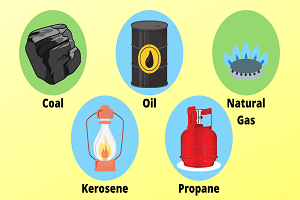Get a Project Report
Profitable Business Ideas for Startups
ALCOHOL FUEL OR ETHYL ALCOHOL (ETHANOL) INDUSTRY
The market for ethyl alcohol (ethanol) is expected to grow at a rate of about 5% per year. Ethanol, often known as ethyl alcohol, is a type of motor fuel. It is used as a gasoline additive in a number of nations. Ethanol and gasoline have legal blends of 25% and 75 percent, respectively. Due to the fluctuating price of crude oil, the use of ethanol as a bio-fuel preservative to gasoline is expanding globally. The use of ethanol as a car fuel improves its fuel economy, increasing its adoption and utilisation in the automotive sector. The primary growth drivers of fuel ethanol are increased government support for the use of ethanol as a fuel and increased worldwide carbon emissions. The eco-friendly quality of this fuel, as well as its low costs when compared to traditional fuel, provide a significant possibility for market expansion.
Ethanol Industry
In India, the ethanol sector is predicted to grow at a compound annual growth rate of 14.50 percent (CAGR). Due to the increased use of ethanol in applications such as fuel additives and beverages. Ethanol is a common alcoholic beverage that comes in many different forms, including beer, cider, wine, spirits, and ale. The Indian government is pushing sugar producers in India to generate ethanol for Oil Marketing Companies in an attempt to reduce the country’s reliance on imported crude oil (OMCs). Ethanol production will likely increase three to fivefold in the future to meet demand for its 20% Fuel Blending Program (FBP). Factors like as rising alcohol use, changing lifestyles, and the growing influence of western culture are projected to drive ethanol demand in the country.
ENTREPRENEURIAL OPPORTUNITIES
Starting an ethanol business now is a great idea because statistics show that ethanol and other biofuels will see increased production and demand in the future. Ethanol is currently classified as a biofuel, and although though it accounts for only around 3% of total global transportation, its future seems bright. With this in mind, launching an ethanol business today could result in big earnings afterwards. The manufacturing techniques and feedstock options differ. Don’t forget that technical advancements are taking place. Because of the vast potential accessible now, the ethanol industry has a good chance of succeeding. People might anticipate an increase in biofuel output. New feedstocks, like as algae and jatropha, have been identified, as well as new technologies, such as thermochemical techniques, which can all help to reduce the cost of ethanol production. Ethanol is presently used in a variety of countries around the world, including the United States, South America, India, and Europe. Many governments are now providing incentives for ethanol production, making this an excellent time to enter the market. You may be eligible for considerable financial aid, such as grants, subsidies, tax breaks, and other relevant incentives, to help you launch your firm. It is entirely up to you whether you will invest a small or huge sum of money in this type of business.
Biofuel Industry
The worldwide biofuels industry is expected to develop at an annual rate of 8.3%. Growing demand for biofuels in road transportation as an environmentally friendly fuel, increased knowledge of renewables, and increased focus on reducing greenhouse gas emissions are all important growth drivers for the biofuels business. Biofuel is a type of fuel that is made from natural sources such as plants, organic materials, and animal waste. The biofuel sector is gaining pace as a viable alternative to petroleum-derived fuels in order to address major concerns about global warming caused by fossil fuels. Soybeans, corn, forestry, agricultural crops, as well as waste from food services and other businesses, are all primary sources of biofuels. These fuels come in solid, liquid, or gaseous forms and are primarily employed in a variety of end-use applications such as energy generation, transportation fuels, lubrication and greasing, cooking, and electrical charging. Biomethane, bioethanol, and biodiesel are three commercially used biofuels. Biomethane is made from home and agricultural wastes, while bioethanol is made from sugar beet, wheat, and algae. Furthermore, animal fats, algae lipids, and vegetable oils are used to make biodiesels.
India Biofuel Industry
India is the world’s third largest consumer of primary energy and one of the world’s fastest developing economies. Until alternative fuels based on renewable feedstocks are produced, India’s fuel energy security would remain fragile. Increased domestic production, the adoption of biofuels and renewables, the implementation of energy efficiency regulations, the improvement of refinery processes, and demand substitution are all part of a five-pronged strategy to meet these goals. Biofuels will play a key role in India’s energy mix, according to this policy. The Indian government has suggested a target of 20% ethanol in gasoline and 5% biodiesel in diesel. The availability of feedstock and the cost of production are the two most important factors driving the sustainable and commercial production and use of biofuels in India. For the development of second generation and other advanced biofuels using domestic feedstocks (including agricultural residues/waste that would otherwise be burned), a major focus on technology is required. The effective and complete execution of India’s biofuels blending scheme will require a collaborative effort from all participating parties.
Alternative Fuels Industry
Because petroleum and diesel are derived from nonrenewable resources, the need for alternative fuels that are easily available or may be made from plant materials has arisen. Alternative fuels have a 30% cost savings and a 100% reduction in emissions. Alternative fuels are gradually taking over the market, with vehicles using alternative fuels covering over 1 billion kilometres in the last decade. The key element driving up demand for alternative fuels is the massive increase in global energy consumption. Alternative fuels help to reduce carbon emissions because they are chemical-free and environmentally beneficial.
Furthermore, the worldwide alternative fuels industry is expected to rise in the next years due to rapidly rising crude oil costs and strong government restrictions aimed at decreasing greenhouse gas emissions. The growing need to reduce import dependency and the diminishing crude oil sources are the key drivers driving the global alternative fuels market forward. Furthermore, these reasons are pressuring energy corporations and governments to increase their investments in the alternative fuels industry. The majority of energy-consuming centres throughout the world rely entirely on imported oil from various oil-exporting countries. Several countries are attempting to raise knowledge about the advantages of alternative fuels in order to minimise this reliance. This is expected to have a significant impact on the market’s growth.
TOP PLAYERS WORLDWIDE
- Abengoa Bioenergy S.A.
- ADM
- Advanced BioEnergy LLC
- Alternative Energy Sources Inc.
- Archer Daniels Midland Company
- Aventine Renewable Energy Inc.
- BP PLC
- Braskem
- BTG International Ltd
- Cargill Incorporated
- China Clean Energy Inc.
- DowDuPont, Inc.
- Flint Hills Resources
- Green Plains Inc.
- HPCL Biofuels Limited
- INEOS
- My Eco Energy
- NewGen Technologies Inc.
- POET, LLC
- Renewable Energy Group, Inc.
- The Andersons Inc.
- VeraSun Renewable Energy Corp.
- VERBIO Vereinigte BioEnergie AG
- Wilmar International Ltd






















